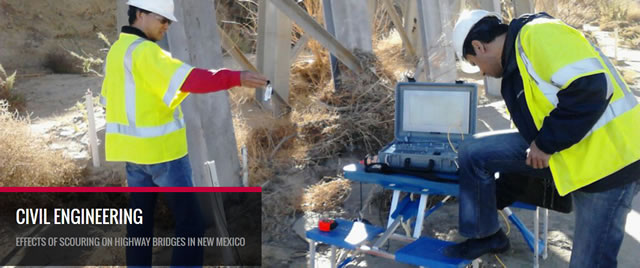
Civil Engineering ETDs
Publication Date
Spring 4-15-2024
Abstract
Thermal short-circuiting is a potential problem for Enhanced Geothermal Systems (EGS). One solution to this problem is to reduce the permeability of very conductive fractures with thermally degradable microcapsules carrying porous polymers that bond to rock, reducing fluid flow without completely sealing the fracture. This concept requires microcapsules to principally travel in the larger, problematic fractures, minimizing entry into smaller fractures; consequently, understanding the transport and blockage of microcapsules is critical. Using a flow visualization configuration, this study involved quantifying the transport and blockage of microcapsules in transparent fracture replicas. Analyses determined most blockage occurred in regions with local apertures 1.25-1.5x the microcapsule size. Results were shown to be repeatable, indicating blockage occurs at nearly the same location for different tests of the same fracture. Gaining knowledge in the transport and blockage of microcapsules in geothermal fractures will advance the potential to modify their permeability and increase efficiency of EGS.
Keywords
Geothermal Energy, Blockage, Transport, Thermal Short-Circuiting, Enhanced Geothermal Systems, Rough-Walled Fractures
Document Type
Thesis
Language
English
Degree Name
Civil Engineering
Level of Degree
Masters
Department Name
Civil Engineering
First Committee Member (Chair)
John Stormont
Second Committee Member
Mahmoud Reda Taha
Third Committee Member
Nick Carroll
Recommended Citation
Seaburn, Brittney Diana. "Microcapsule Transport and Blockage in Rough-Walled Fractures." (2024). https://digitalrepository.unm.edu/ce_etds/328
